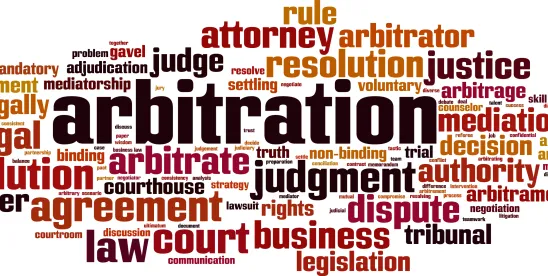We are keeping an eye on the progress of the reform of the English Arbitration Act 1996. The Arbitration Bill, first introduced in November 2023, was designed to update the Arbitration Act 1996 and reinforce England’s position as an attractive forum for international arbitration.
As noted in our most recent blog in this series, the bill was shelved when the 2024 English general election was called. However, in July 2024, the new Labour government reintroduced the bill and it resumes its journey through the UK parliament (tracker). The bill is currently in the upper house of the UK parliament, after which it will be introduced to the lower house for further debate, scrutiny and approval – if both houses agree. Given the support the bill has garnered to date, is likely to pass during the current legislative session (in late 2024 or early 2025).
There are two points of interest in relation to the bill, since our last post:
The Bill’s ‘Governing Law’ Proposal Remains Important
On 18 September 2024, in UniCredit Bank GmbH, the UK Supreme Court issued its final judgment in case concerning an issue central to the bill’s proposed reforms: the ‘default rule’ on governing law of an arbitration agreement.
In the original bill, a rule was proposed to set the governing law of an arbitration agreement as the law of the seat of arbitration unless the parties explicitly choose a different law. If the parties only chose a law for the main contract, that didn’t automatically apply to the arbitration clause. As our previous post on this topic explained, the rule aimed to address confusion from the 2020 Supreme Court decision in Enka v Chubb, which provided that, unless stated otherwise, the law of the main contract would govern the arbitration agreement.
The Enka ruling caused uncertainty, as parties, particularly in arbitration favourable seats, may prefer (and expect) the seat’s law to apply, in particular, over the various governing laws at play in relation to a typical complex international arbitration dispute.
In UniCredit Bank, the UK Supreme Court reinforced the law that is considered ripe for reform. The case involved performance bonds governed by English law, with disputes to be resolved by ICC arbitration seated in Paris. RusChem, the bond beneficiary, argued that the arbitration agreement should be governed by French law, given a Paris seat. The Supreme Court rejected this view, affirming that the law governing the main contract should apply to the arbitration agreement, unless explicitly stated otherwise. The court noted its reluctance to interfere with applicable principles while the bill remains before Parliament.
A Carve-Out for Investment Arbitrations
There is another point of particular interest to parties to investor/state arbitration disputes in the bill in its current form. The reintroduced bill adds a carve-out to the governing law reform proposal: the rule won’t apply to arbitration agreements that stem from investment treaties or foreign legislation. This is relevant for investment treaty arbitrations, as different statutory frameworks typically govern the arbitration process.
Investment arbitration agreements, unlike commercial ones, often arise from treaties offering a standing invitation for investors to arbitrate disputes. These treaties usually don’t specify a governing law for the arbitration agreement. English courts generally consider international law or the foreign state’s law to apply (see Kyrgyz Republic v Stans Energy Corporation, a case in which several of the Proskauer team were heavily involved).
The carve-out in the new bill, however, prevents English law from automatically applying to arbitration agreements from investment treaties. We note that applying a default rule as proposed in the bill to these agreements could create conflicts, as the host state might not have intended for English law to govern such disputes – and could also complicate the enforcement of awards.
We continue to watch the bill’s progress and will update on any further developments or relevant caselaw.




 />i
/>i
